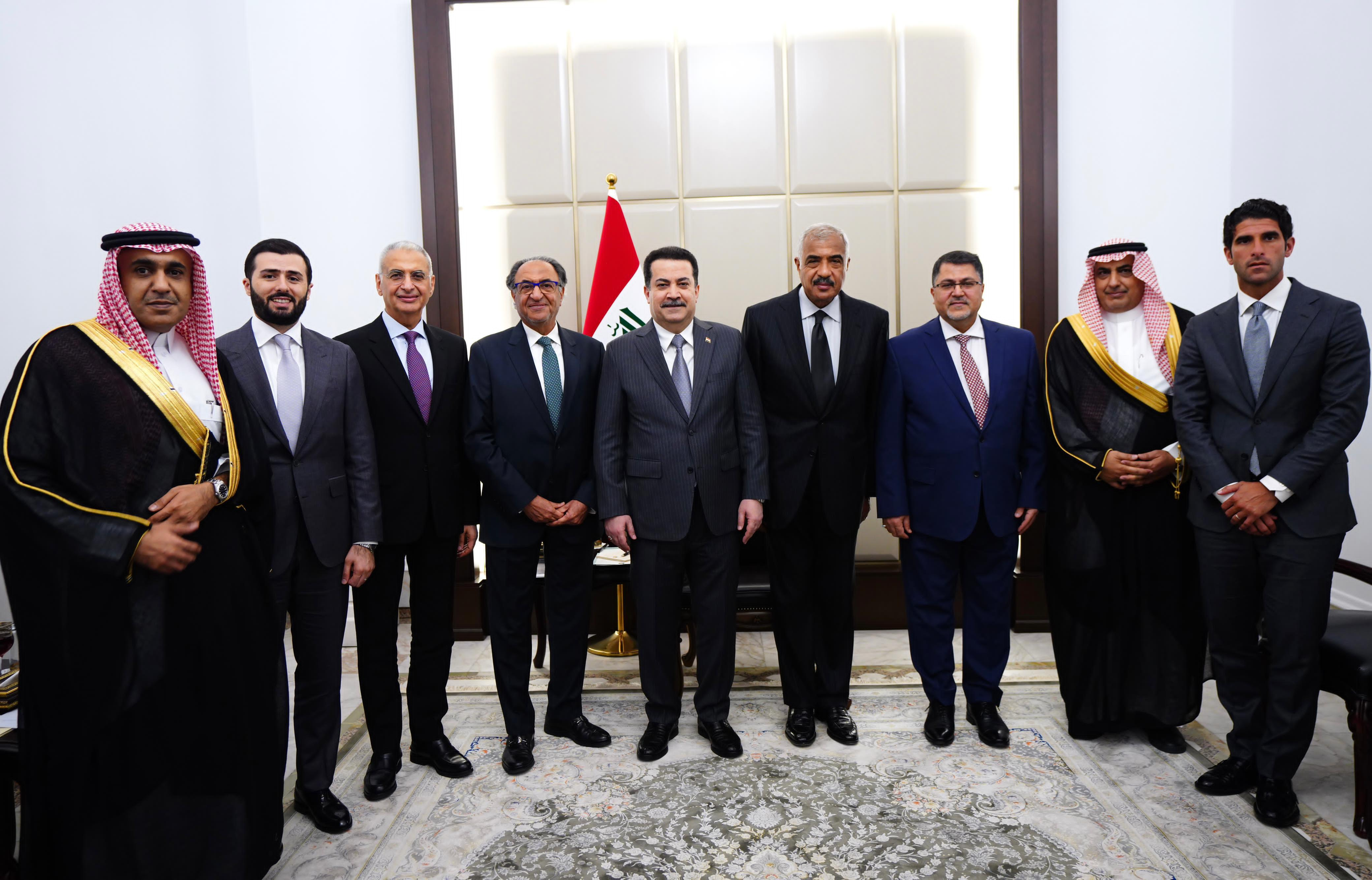
The Iraqi Prime Minister, Muhammad Shia' Al-Sudani, received on Saturday a delegation of Egyptian and Saudi businessmen, as well as Iraqi businessmen. The delegation included Mr. Hisham Talaat Moustafa, CEO and Managing Director of Talaat Moustafa Holding, Mr. Sulaiman Abdulkadir Al Muhaidib, Chairman of the Board of Directors of Al Muhaidib Group, Mr. Essam Abdulkadir Al Kadir, CEO of Al Muhaidib, and Mr. ElRaed Ibrahim Al Muhaidib, Director of Development in the Group, Mr. Yasser Qasim Zaghir, Director of Al Maisarah Group, and businessman Ahmed Hani Talaat. The Saudi Ambassador to Iraq, Mr. Abdul Aziz bin Khaled Al Shammari attended the meeting.
During the
meeting, the Iraqi Prime Minister extended an invitation to Egyptian and Saudi
companies. He highlighted their expertise in real estate development and
integrated smart residential cities, suggesting their investment in Iraq's
tourism sector. He emphasized the country's diverse tourist destinations and
argued that a thriving Iraqi tourism industry would benefit the entire Arab
world economically.
Iraqi Prime
Minister Al-Sudani highlighted a period of rapid growth and recovery in Iraq,
presenting numerous investment opportunities, particularly in housing and new
city initiatives. With a critical need for approximately 3 million housing
units, the government is committed to developing comprehensive, integrated
cities. These new urban centers will encompass all essential sectors, including
services, recreation, and commercial facilities. Additionally, a well-developed
transportation network will connect these cities to Baghdad, the capital.
The Iraqi Prime Minister explained that the Iraqi government supports successful investment experiences. He presented the Egyptian and Saudi delegation with investment opportunities in a number of projects, including five new cities in the capital, Baghdad, and some governorates. He added that the Iraqi government will launch 11 new cities, affirming that modern cities must contribute to solving the housing crisis, especially for low-income individuals.





